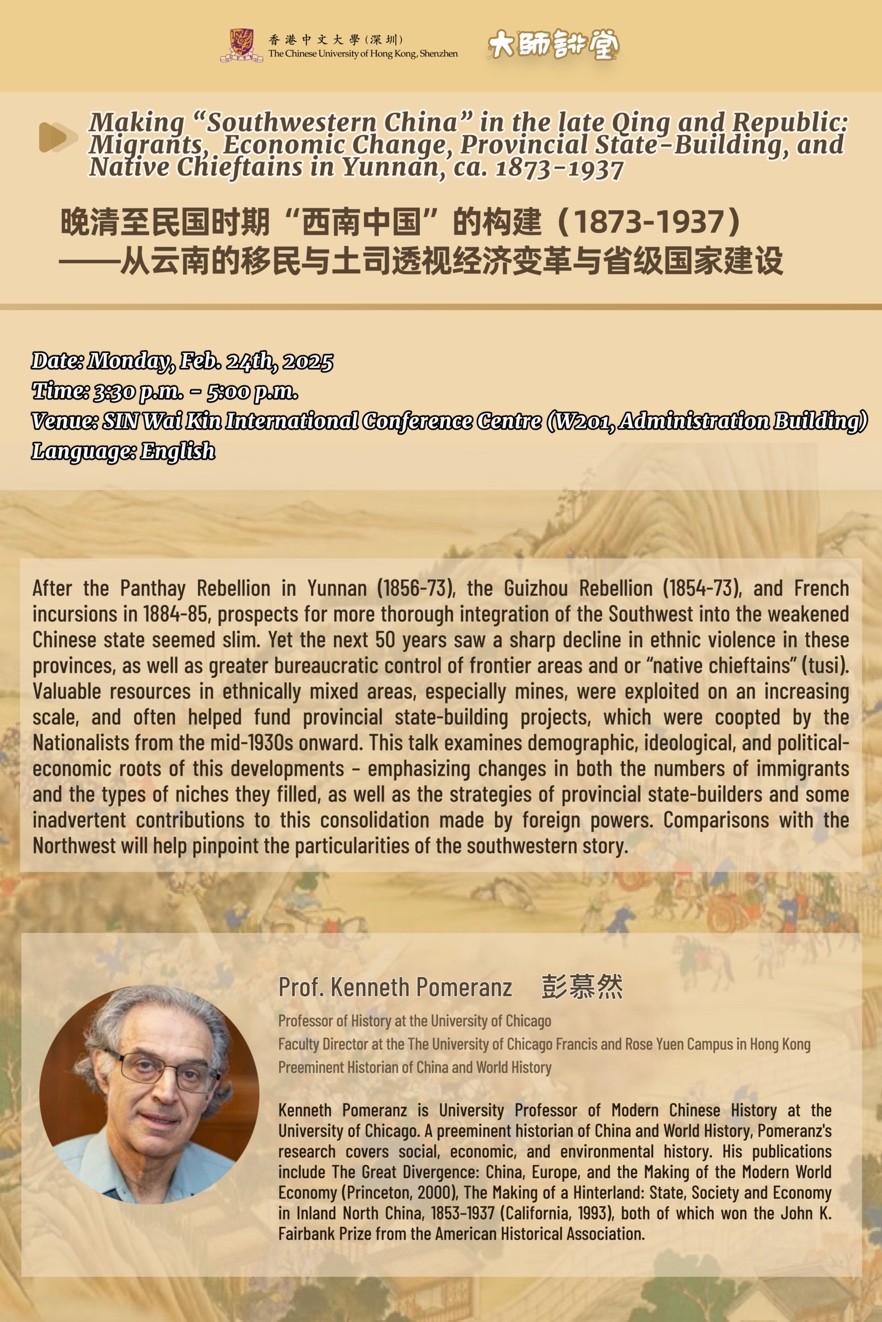【Master Forum】Making “Southwestern China” in the late Qing and Republic: Migrants, Economic Change, Provincial State-Building, and Native Chieftains in Yunnan, ca. 1873-1937
Topic: Making “Southwestern China” in the late Qing and Republic: Migrants, Economic Change, Provincial State-Building, and Native Chieftains in Yunnan, ca. 1873-1937
Speaker: Prof. Kenneth Pomeranz
MC: Dr. Wang Chao
Date: Monday, Feb. 24th, 2025
Time: 3:30 p.m. - 5:00 p.m.
Venue: SIN Wai Kin International Conference Centre (W201, Administration Building)
Language: English
Abstract:
After the Panthay Rebellion in Yunnan (1856-73), the Guizhou Rebellion (1854-73), and French incursions in 1884-85, prospects for more thorough integration of the Southwest into the weakened Chinese state seemed slim. Yet the next 50 years saw a sharp decline in ethnic violence in these provinces, as well as greater bureaucratic control of frontier areas and or “native chieftains” (tusi). Valuable resources in ethnically mixed areas, especially mines, were exploited on an increasing scale, and often helped fund provincial state-building projects, which were coopted by the Nationalists from the mid-1930s onward. This talk examines demographic, ideological, and political-economic roots of this developments – emphasizing changes in both the numbers of immigrants and the types of niches they filled, as well as the strategies of provincial state-builders and some inadvertent contributions to this consolidation made by foreign powers. Comparisons with the Northwest will help pinpoint the particularities of the southwestern story.
Speaker Profile:
Kenneth Pomeranz is University Professor of Modern Chinese History at the University of Chicago. A preeminent historian of China and World History, Pomeranz’s research covers social, economic, and environmental history. He is the author of The Great Divergence: China, Europe, and the Making of the Modern World Economy (Princeton, 2000), The Making of a Hinterland: State, Society and Economy in Inland North China, 1853–1937 (California, 1993), both of which won the John K. Fairbank Prize from the American Historical Association. His current projects include a book called Why Is China So Big? which tries to explain, from various perspectives, how and why contemporary China's huge land mass and population have wound up forming a single political unit.






